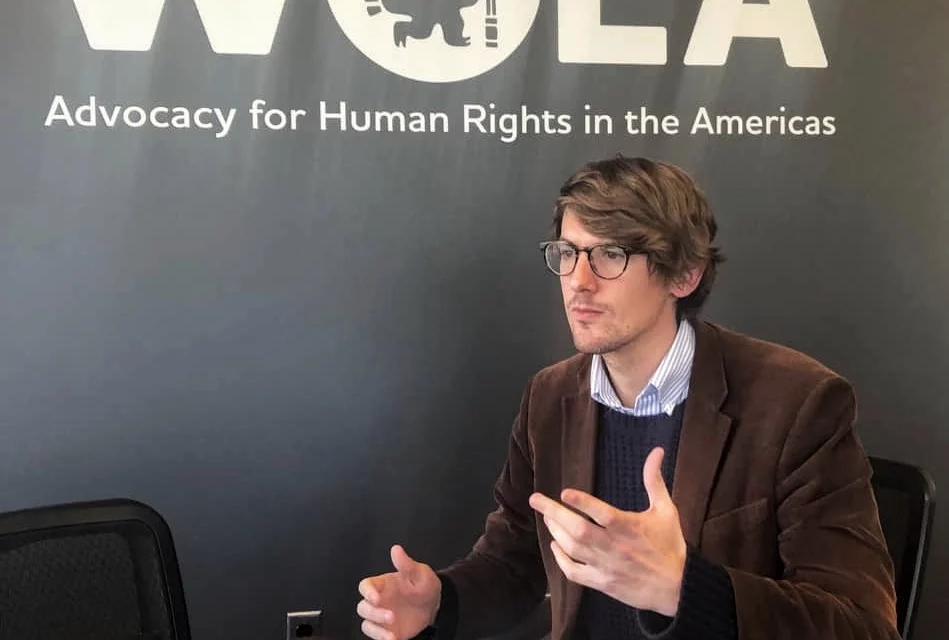Google Translate available in: Español
On October 9, WOLA Director for Venezuela Geoff Ramsey was interviewed by Prodavinci and emphasized the importance of incorporating a human rights perspective in any future negotiation process in Venezuela with international support. He also spoke of Washington’s apparent strategy to encourage progress in this direction. The first few questions and Ramsey’s answers are below. You can read the full interview here.
Q: What is the perception in Washington of the current situation of the Venezuelan process, of the climate in general?
A: We must begin the analysis of the current situation in Venezuela by mentioning the recent report of the United Nations Fact-Finding Mission (FFM). This report documents the serious crimes against humanity that have been committed, as well as the grave violations of human rights in the context of state repression. They are very clear in highlighting that the Maduro government has not cooperated with the recommendations made by Michelle Bachelet in her tenure as UN High Commissioner. We are still far from seeing genuine reforms and investigations that could guarantee the judicial reinstitutionalization of the country. That is to say, Venezuela, as of today, is a state whose institutions are completely co-opted by the executive power. In this context, I believe that the international community has an opportunity to continue promoting political solutions that could reestablish the rule of law, access to justice for the victims and expand the democratic space in Venezuela.
Q: I think this [UN FFM] is the most serious report that has been published on Venezuela, the one that has gone the most in depth and documented, rigorously, the human rights violations that have been committed. And the question is: Is the United States really committed to the defense of human rights? What would you say about this doubt?
A: I do not see the Biden administration abandoning its efforts to seek a democratic solution to the crisis. The truth is that the U.S. government is not going to normalize relations with the Maduro government without clearing the way for free elections and genuine reforms in the justice system. The UN report contains a series of recommendations to end widespread impunity. Significant changes are also included to allow for genuine investigation and prosecution of these crimes. In the Memorandum of Understanding signed in 2021 – between the Maduro government and the opposition in Mexico – the parties committed to discuss the rule of law and reparations to victims. I do not see it as contradictory to support a negotiation process at the same time, as the United States is doing.
Q: What I raised was a doubt, not a contradiction. They are two different things, aren’t they? Don’t you think that Mr. Maduro’s government has crossed some lines from which there is no return?
A: The report presents clear evidence that points to those responsible, from the highest levels of the chain of command to the officials involved. Without justice and reparations for the victims of human rights violations and crimes, there can be no political solution to the crisis in Venezuela. And by this I do not mean that a transition is impossible. We have seen many cases, in other South American countries, in which there have been transitions to democracy. That is why there is a need to channel the pressure towards realistic and lasting solutions. One of the mistakes of the Trump administration was to insist on “maximum pressure” as a goal in itself, without offering clear incentives for Maduro and his allies. It insisted on a hypothesis that “maximum pressure” was going to generate some kind of break and an automatic transition, but that did not happen.



